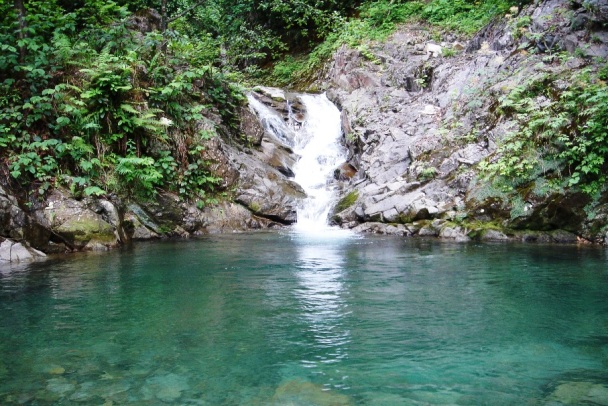Weekly Maintenance Of Your Aquarium
Weekly Maintenance of your aquarium is the core of fishkeeping. Your most important and regular maintenance tasks are conducted during this part of your maintenance schedule.

Your Little Friends Love Fresh, Clean Water
Doing weekly maintenance will give your little aquatic buddies the fresh, clean water that they enjoy in their natural habitats. Rainfall in the tropical regions where they come from can be a daily refresher to their homes. In your aquarium, you simulate this exchange of fresh water with a weekly water change.
Weekly maintenance can take less than thirty minutes once you develop a routine. Stick with your schedule and your aquarium will be a healthy enviornment for all your little friends.
Here are some things that you should do on a weekly basis.
- Count Your Fish Do a headcount of all your friends. You might be missing one or two of the smaller guys if you keep Cichlids. There might be a dead fish hiding under some decorations. One may have jumped over the back of the tank. Many things can happen to the fish in your aquarium. Finding your casualties before they cause sickness or just a foul smell is important.
- Test Your Water You may have already been doing daily testing with dip tests, but chemical tests that use a test tube are more accurate. Do these more accurate tests at least once a week. Doing it during your weekly maintenance will help you remember.
- Clean The Light Covers On Your Hood This is an often missed item for most people. You don't notice the algae that builds up on the water side of your aquarium hood until your lighting looks dim and green. Cleaning this algae off your hood keeps it from dripping into your tank and blooming across your glass.
- Clean The Glass On The Sides Of Your Aquarium Even if it looks like nothing is growing here, there are little pieces of debris and algae just waiting to cause a problem. Use an algae brush or magnetic scrubber to keep the glass of your aquarium clear so that you can see your beautiful friends.
- Remove Debris And Dead Plants Your fish will cause damage to your plants and decorations during the week. Remove any dead plants and debris that have built up. It is especially important to make sure that your filter inflow is clear so that the maximum amount of water will pass through your filtration system.
- Check Your Filtration Media Check the cartridges in your aquarium filters for large pieces of debris. It is not a bad idea to remove mechanical filtration media and rinse it off. Do not rinse your biological media such as bio-wheels and bio-balls. Tap water will kill the bacteria that helps you maintain the Nitrogen Cycle.
- Do A Water Change And Vacuum The Gravel Finally we do the most important step, your water change. I like to do a 15%-30% water change weekly. Some people like to do it bi-weekly. I feel that doing a weekly change helps maintain a lower level of harmful chemicals on a consistent basis. No matter what your preference, this is an important maintenance step. You might be able to skimp on the others, but this one has to be done. Vacuuming the gravel during your water change will kill two birds with one stone.
- Treat Your Water With Additives Here is another one of those black arts of fishkeeping. Everybody seems to have their own process for this. My theory is that less is better. I use a water conditioner that removes chlorine and other harmful tap water chemicals. This conditioner also has some aloe in it to treat any scrapes my little friends have aquired during all the running around they do when I change the water. I also use Melafix, as instructed on the label, to reduce the chance that I have introduced any harmful bacteria from putting my hands in the water during cleaning. Last, I wait a day and then add Stress Zyme to replace any useful bacteria that my Melafix treatment may have destroyed.
So, roughly thirty minutes later you have a clean aquarium with fresh water and a bunch of active friends swimming around. This is one of my favorite times to watch my little buddies because they seem to feel better. Also, my Cichlids get back to work almost right away digging the substrate and rebuilding their beds. I feed my aquarium right after weekly maintenance as a further reward to my fish for not trying to nip my fingers!
For more information on Weekly Maintenance, go to Wikipedia's Fishkeeping page.





